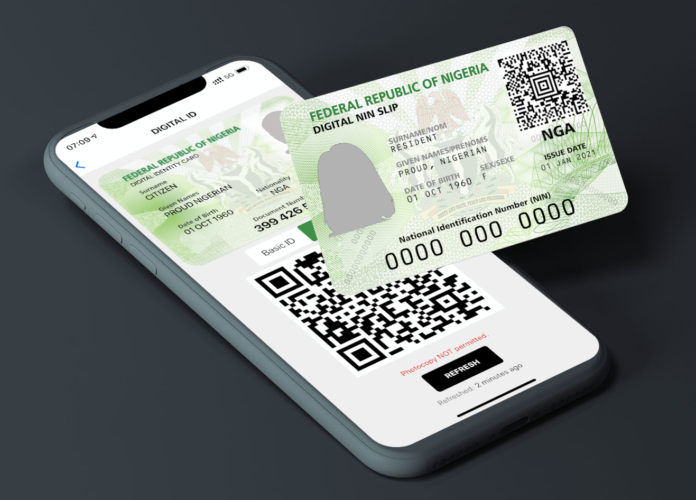Digital token safer, easier to carry
By Jeph Ajobaju, Chief Copy Editor
A digital token has replaced National Identification Number (NIN) paper slip and polycarbonate card for safety and better preservation.
Digital token enhances privacy of personal information during verification transactions and reduces illegal retrieval, usage, transfer, and storage, says Communications and Digital Economy Minister Isa Pantami.
He made the disclosure at a workshop on NIN Tokenisation Solution in Abuja organised by the National Identity Management Commission (NIMC).
Pantami, represented by NIMC Director General Aliyu Abubakar, said the full replacement will begin on January 1, 2022, explaining that tokenisation protects personal identifiable information and protects individuals.
“One of the benefits of the virtual NIN is to ensure no third party may carry out any verification, hiding behind a proxy (and without the knowledge of the NIMC, being the Custodian of Identity).
“And also generated Token or Virtual NIN is unintelligent, completely random with no correlation to the NIN and cannot be reverse engineered, even by a Quantum Computer.
“The NIN holder is the only exclusive issuer of NIN and cannot be delegated,” he stressed.
__________________________________________________________________
Related articles:
NIN now required for jobs, passport, bank account, driver’s licence
Diaspora Nigerians can’t renew passports; stranded abroad
__________________________________________________________________
Anonymisation
Anonymisation is also catered for with the attachment of the UserID of the verifier to every verification request, and once there is no NIN, there cannot be verification, Pantami explained, according to the News Agency of Nigeria (NAN), reported by Vanguard.
He said NIN tokens are MDA or merchant specific and expire after a set period of time, and a token generated for company A cannot be utilised by company B.
He added that the aim of the workshop was to rub minds with stakeholders to ensure understanding and co-operation by all.
“We must continue to reinforce the need for every Nigerian to have a digital identity, irrespective of social class or economic status, and improve access to all and ensure continuous protection of privacy and data of our citizens and other enrollees.
“We must sustain the momentum by creating continuous awareness programs and sensitising of the public.”
NIMC Technical Consultant Tunji Durodola explained that digital token replaces the 11-digit NIN for everyday usage.
He disclosed that NIN has been shared and stored by various entities mostly without the knowledge or consent of the ID holder or the NIMC.
Durodola said the improved NIN slip has a smaller firm factor and is available to all who have been issued an active NIN, and can be bought without having to visit the NIMC office.
“Some of the pre-requisite of tokenisation, one needs a NIN issued by NIMC, mobile number registered in Nigeria and linked to your NIN,” he explained.
NIMC Director (Legal, Regulatory and Compliance Services), Hadiza Dagabana, stressed need for public sensitisation with information disseminated in local languages for better understanding.
Tokenisation explained
NAN reports that tokenisation comprises 16 alpha-numberic characters, starting and ending with two letters of the alphabet.
A digital token is issued by an ID holder via the NIMC MWS Mobile ID app or via USSD on a feature phone.
A mobile number linked to a NIN is required to access it.













